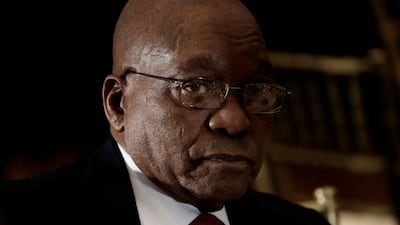In Cape Town, where I live much of the year, we have had two running dramas all summer which have drowned out most other topics, (almost) including Trump, Brexit, cricket and even rugby.
One is the drought of course, which goes on and on – as I write this I am looking out at Table Mountain, which has a few tantalising wisps of cloud clinging to it, but there will be no rain today, just as there wasn’t any rain yesterday and won’t be any rain tomorrow, which promises to be yet another scorcher.
The city authorities, who have reduced our daily consumption of fresh water to 50 litres (not enough for a decent bath – not that anyone has had a decent bath in a long time), have set mid-May as “Day Zero”, rather than the previously announced April 16, when the taps get switched off and a modern city of 4 million people has to queue at standpipes. Hotels and holiday companies are reporting mass cancellations for later in the season and farmers are watching their crops shrivel in front of their eyes.
The other long-playing drama is the fate of the President Jacob Zuma, which thankfully is drawing to its end. The drought has dragged on for three years, and unless weather patterns out in the Atlantic, which used to dump huge quantities of water on this most fortunate of cities, shift back to where they were a few years ago, it will become a permanent feature of Cape Town life. Mr Zuma’s presidency has lasted for nine years, and done immense damage to Africa’s most industrialised economy. But at least it has a conclusion – his own party has finally decided he should go and go he must.
_______________
Read more:
Zuma presidency close to its end as deal to stand down is finalised
Amid power shift South Africa's rand rebounds
_______________
The mere prospect of his early departure, 18 months before his term officially runs out, has already had an extraordinary impact on sentiment, inside and outside South Africa. Two years ago the rand had dropped to 17 rand (Dh5.22) to the US dollar and 23 to the UK pound and it looked as if it was going to fall even further. On Tuesday morning, after the news that the ANC’s executive had unanimously decided to “recall” (polite party language for “sack”) Mr Zuma, it traded below 12 rand to the $ and 16.5 rand to sterling, making it the strongest currency in the world so far this year.
Prices on the Johannesburg Stock Exchange hit an all-time peak in January, although they have fluctuated since almost as violently as Wall Street, business confidence has bounced back to its highest level in two years and foreign direct investment, which has been flowing the wrong way in the past year, reversed after the election of Cyril Ramaphosa as the ANC president in December.
The South African economy is a remarkably resilient and potentially prosperous one, with a lot going for it. It may no longer be the mining powerhouse it once was, but it still has huge reserves of iron ore, coal, and precious minerals including gold, platinum and diamonds. It is the world’s largest producer of chrome, manganese, vanadium and vermiculite, and mines significant quantities of lots of other important minerals (the Chamber of Mines lists it as the second biggest producer of ilmenite, palladium, rutile and zirconium). In 2012 it overtook India to become China’s biggest supplier of iron ore.
The country now gets 10 million tourists a year, up 10-fold since 1994, and Cape Town’s Waterfront, which didn’t even exist in 1994, boasts 24 million visitors every year. South Africa is a big exporter of wine, fruit and even cars – all right-hand drive Mercedes C-class cars are manufactured in Port Elizabeth.
The great tragedy is that during the Zuma years, the economy has actually gone backwards, growing at a slower rate than the population, which has been swelled by 3 million Zimbabweans entering illegally, not to mention immigrants from Malawi, Zambia, Mozambique and even Senegal and the Sudan. In the centre of Cape Town, the language spoken is often French among a community which has somehow found its way here from West Africa.
Run your eye down those wonderful tables for "output, prices and jobs" at the back of The Economist and South Africa leaps out at you: an unemployment rate of 27.7 per cent, the highest on the whole list. The next highest is Greece with 20.7 per cent. And that tells you just a fraction of the true story: economists reckon that the real rate of South African unemployment is nearer 40 per cent if you count all those who don't even bother to look for work any more. There are 6 million young people aged between 18 and 24 who have no skills and will probably never work; 17 million people are dependent on government grants compared to just 13 million people working.
To make a dent on unemployment, economic growth has to be at least 5 per cent and preferably more – which is really what a developing country like South Africa, with all its advantages, should have been achieving this past 20 years. In fact the best it has done is 3.5 per cent in the good years and in the past few years has averaged just 1 per cent. This year the forecast is for 1.5 per cent, which is pretty sad in the context of a world boom.
That’s the true legacy of Mr Zuma as he finally prepares to shuffle off the presidential stage. And the task his successor Cyril Ramaphosa has to deal with.
The drought, I’m afraid, is in someone else’s hands.

